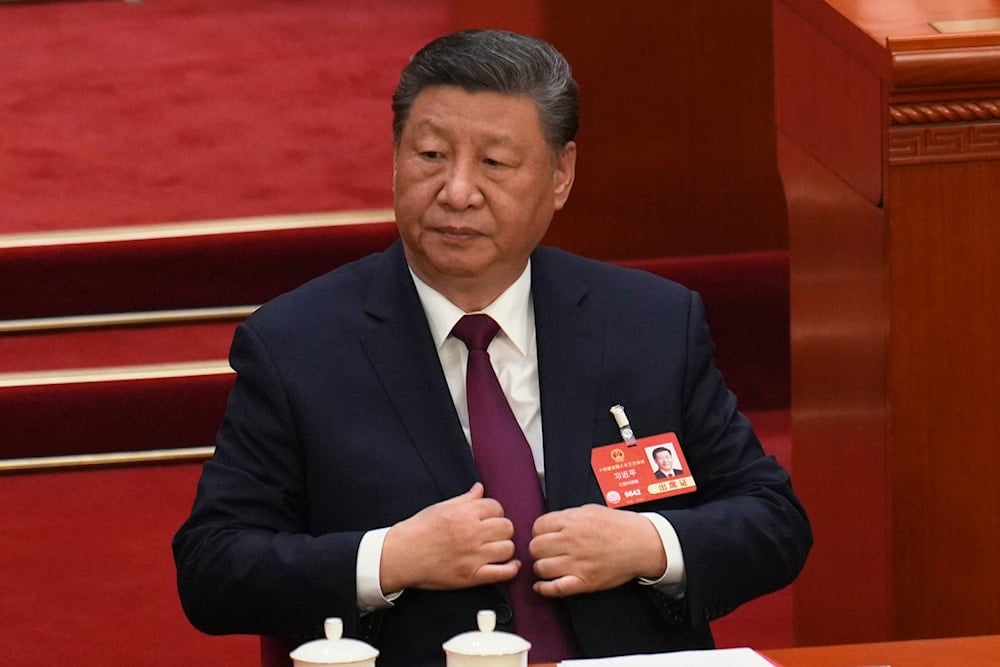China's Xi warns foreign executives of 'severe' trade headwinds
Xi Jinping warns of "severe challenges" to global trade, pledging to further open China to foreign firms amid escalating trade tensions with the US.
-

Chinese President Xi Jinping attends the closing ceremony of the National People's Congress held at the Great Hall of the People in Beijing, on March 11, 2025. (AP)
Chinese leader Xi Jinping cautioned about "severe challenges" confronting global trade on Friday while pledging to open China’s doors "wider and wider" to foreign businesses amid an escalating trade war with the United States.
During a meeting at Beijing’s opulent Great Hall of the People with executives such as hedge fund leader Ray Dalio and Samsung Electronics chief Lee Jae-yong, Xi expressed concern over the growing prevalence of "unilateralism and protectionism."
"Multilateralism is the inevitable choice for addressing the difficulties and challenges facing the world, and economic globalisation is an unstoppable historical trend," Xi said.
His remarks subtly criticized Trump’s newly imposed tariffs, which are weighing on Chinese exports after last year’s record highs.
As global trade challenges put additional pressure on its already fragile economic growth, Beijing has stepped up efforts to attract foreign businesses.
At the same time, it has portrayed itself as a steadfast supporter of the multilateral trading system, in contrast to the unpredictable US president, whose actions are disrupting the international order.
During Friday’s meeting, Xi emphasized the importance of adhering to World Trade Organization rules and assured that China would continue to "advance trade and investment liberalisation," highlighting that "all parties should work together to uphold the global economic order."
He also pledged that "foreign enterprises in China can develop their advantages and capabilities and gain an advantage in global competition."
Exports have long been a crucial driver of growth for China’s manufacturing sector, but rising trade and geopolitical tensions now pose a significant threat.
Foreign businesses operating in China have long voiced concerns about an uneven playing field, citing issues such as intellectual property theft, opaque regulations, and unfair advantages for local firms. The introduction of a sweeping counterespionage law in 2023 has done little to ease these frustrations.
Two days ago, Trump imposed tariffs on vehicle imports on Wednesday, according to the White House, escalating tensions with trading partners ahead of more charges anticipated next week.
White House Press Secretary Karoline Leavitt informed reporters that Trump would announce the "auto industry" tariffs in an address but did not elaborate on their scope.
Since becoming president in January, Trump slapped tariffs on imports from key US trade partners Canada, Mexico, and China, as well as a 25% charge on steel and aluminum imports.
The Guardian reported earlier that countries across Europe, Canada, and Scandinavia are turning their backs on American goods in protest, including European car buyers rejecting Teslas produced by Elon Musk. He has already granted automakers a temporary respite from the taxes impacting North America.
Read next: Trump’s new term brought along unwelcome surprises for China: WashPo

 3 Min Read
3 Min Read








